Will Robotics and Automation Return us to Humanity and Improve our Wellbeing?
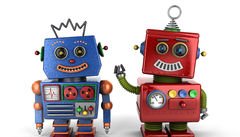
I love Netflix documentaries, especially those about food! One of my most recent guilty pleasures is Cooked a book written by Michael Pollan and adapted by Netflix. This four part series cleverly uses the four classical elements of earth, water, air and fire and incorporates them in to the art of cooking. Of course, each of these elements are fundamental to humanity and our survival. Humanity is the key word here. Each part of the series takes us in to a 60 minute highlight of people from across the globe highlighting why food and specifically cooking that food is a fundamental part of their lives or cultures.
One particular comment from Michael resonated with me. He stated "we are losing our humanity, we have outsourced the task of cooking because we have become so busy in our daily lives that we no longer have time for what is perceived as a rote and miserable task." But this seemingly mundane task is the base of our being, our humanity. Humans for a millennia, have hunted and prepared their own food before the advent of industrial farming and supermarkets. Because of this outsourcing humans have not only lost the connection to nature, the very thing that provides us the bounties that ensures our survival, but we've also lost the connectivity between one another when we perform the simple task of preparing a meal. The outcome, according to Pollan, are humans with little time and a litany of health related issues from obesity to depression.
As I finished watching the second part of the series, I started thinking of how the technological revolution, specifically advances in robotics and artificial intelligence, might change the equation to this particular problem. I thought, as more and more of those mundane tasks and jobs that we do to bring in money (work) are outsourced to robots and RPA/AI capabilities, might that free us up to do more of the things that are seemingly more...well...human? Will technology free us from the 40-60 hours a week of drudgery to engage in things of enjoyment, of humaness? Will robots and AI return us to humanity and improve our wellbeing?
While Pollan gave us some anecdotal tidbits about the correlation between hours worked per week and pervasive human health issues, I wanted to see if that truly was the case using empirical data.
The Experiment
First, I wanted to run a few correlation analyses to see if there were any indications of links between hours worked and our most troublesome conditions of modern humanity.
Hypothesis 1: There is a positive correlation between hours work and percentage of obese adults in the U.S.
Hypothesis 2: There is a positive correlation between hours worked and the occurrence of heart failure in the U.S.
Hypothesis 3: There is a positive correlation between hours worked and the occurrence of cancer in the U.S.
The data I used for hours worked is from the U.S. BLS American Time Use Survey (ATUS). I thought this data was interesting because it is a self-reported snapshot of how a sample population uses its time over a 24 hour period. The data set I used was "Avg. hrs per day - Working and work-related activities (includes travel)". This sample includes participants 15 years old and older. Here is a snapshot of this data:

Next, I gathered data sets to test each of the hypotheses; obesity, the occurrence of heart disease, and the number of cancer occurrences. Unfortunately, I could not locate easily convertible data for the 10 year horizon for the obesity variable. Here are graphs of those data points.
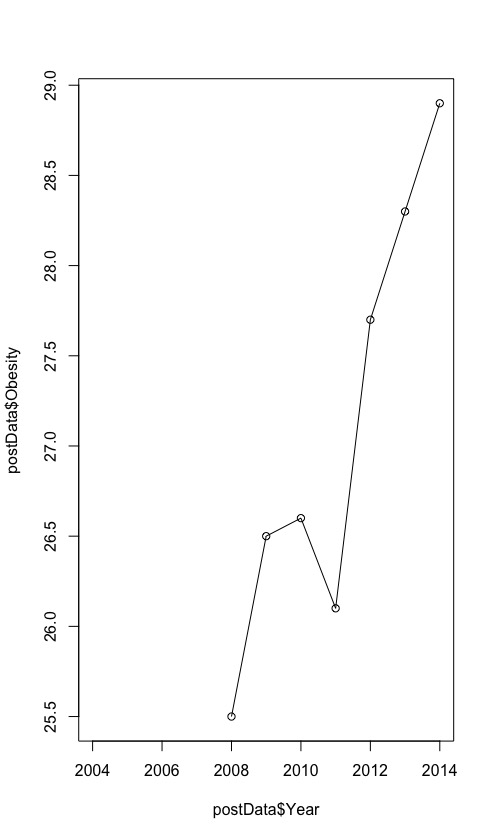
Min. 1st Qu. Median Mean 3rd Qu. Max.
25.50 26.30 26.60 27.09 28.00 28.90
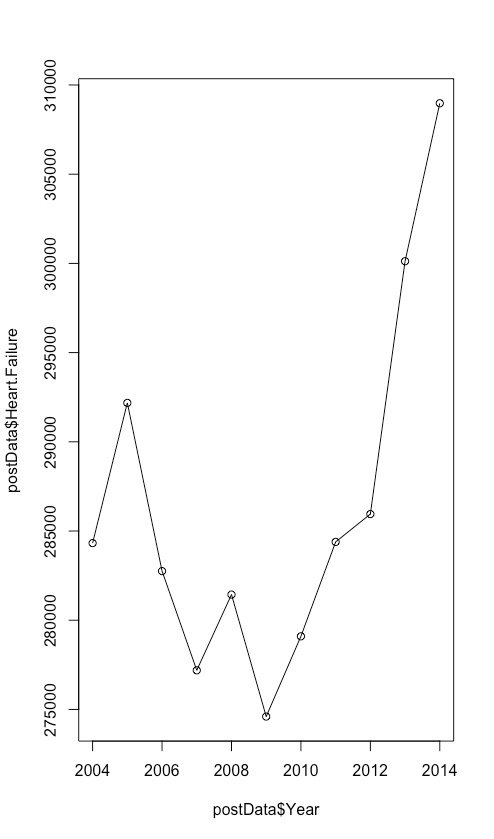
Min. 1st Qu. Median Mean 3rd Qu. Max.
274,600 280,300 284,300 286,500 289,100 309,000
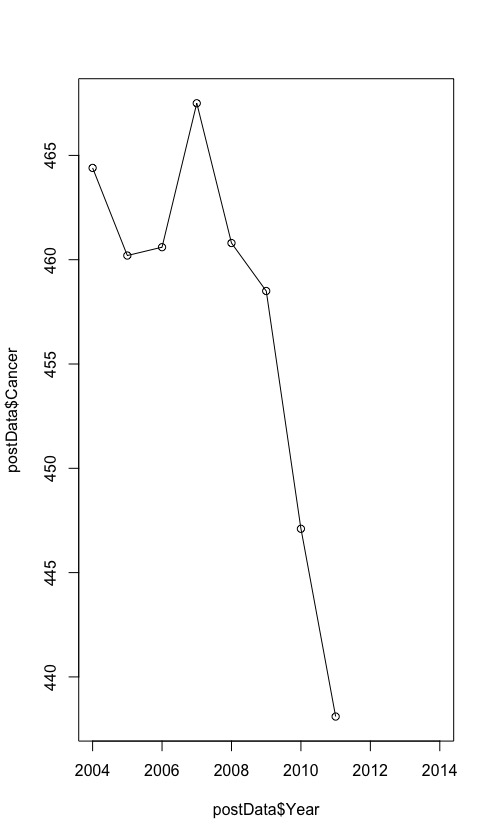
Min. 1st Qu. Median Mean 3rd Qu. Max.
438.1 455.6 460.4 457.2 461.7 467.5
After running a correlation analysis in R for each of the data sets, the following was produced:
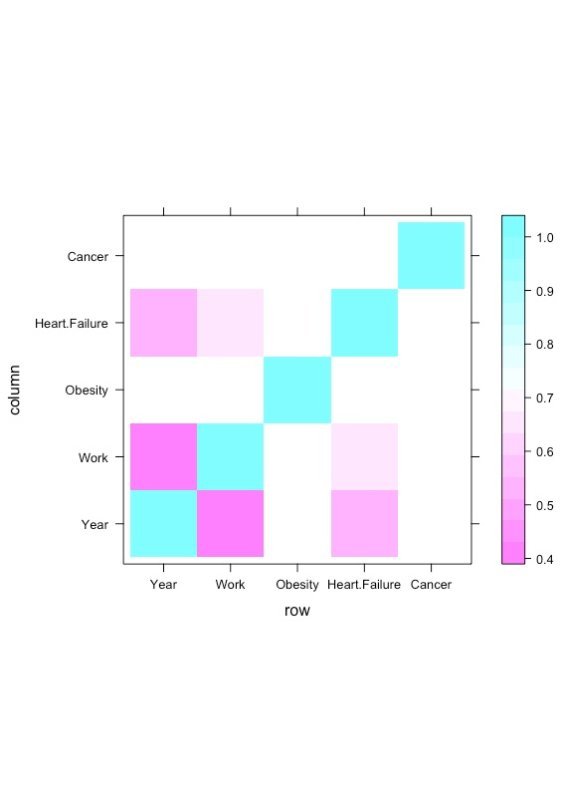
Work/Obesity: -0.6881996
Work/Heart failure: 0.9373185
Work/Cancer: -0.4608260
There seems to be significant correlations between Work/Obesity (negative) and Work/Heart failure. After running a Two-Sample t-test for each hypothesis, the p-values.05 signaled that there is a difference in the means. The Work/Obesity negative correlation flies in the face of the more hours we work the more obese we become while I could definitely see a link to increased work hours and heart failure due to increased negative stressors.
Conclusion
So what does all this mean? Well, it appears that if we work LESS due to the technologies of AI and robotics, we will become MORE obese (think the movie WALL-E!). However, if we work LESS due to these technologies than our chances of heart failure may decrease due possibly to less work related stress.
I admit that this analysis is incomplete and needs more data/testing to draw conclusions however, I think it will be important to study the emotional and physical effects on humans in this new robotic age as the overall impact will be enormous to our daily lives. These technologies could be the path to the irrelevance of our being or the path to our enligthenment.